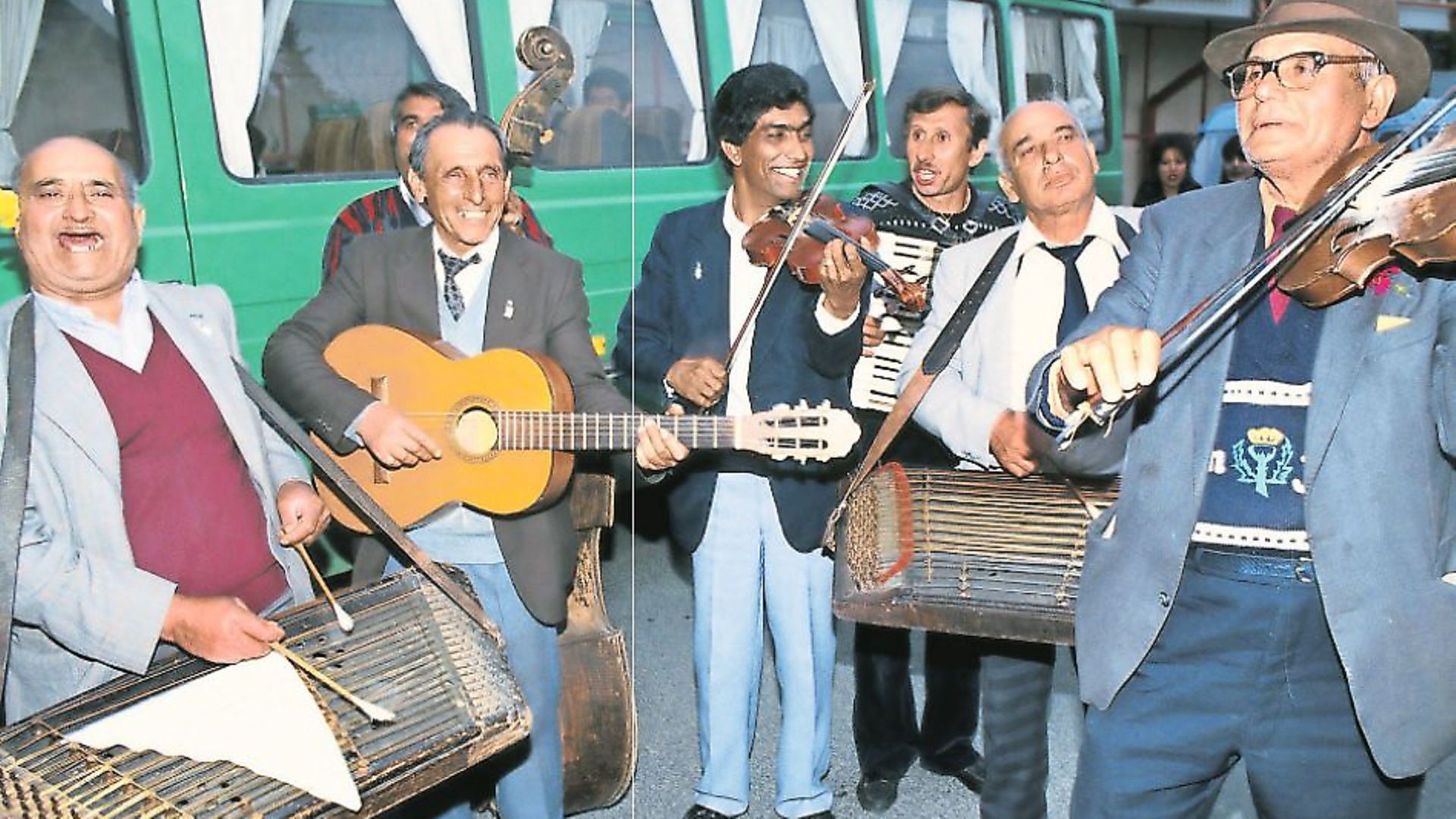
Historical attempts to curb Romanian culture have only aided creativity, says SOPHIA DEBOICK.

For a short while, Romania looked like it might become a beacon of creative freedom in the communist east. When Ceausescu became general secretary of the Romanian Communist Party in 1965 he adopted a policy of critique of the Soviet Union and openness to the west. For the next six years – crucial ones indeed for popular music – Romanians had some access to western music, from psychedelia and prog on vinyl to Cliff Richard and Tom Jones on TV.
But a visit to North Korea in 1971 radically changed Ceausescu’s plans for Romania, and his July Theses signalled a crackdown on freedom of speech and cultural diversity. The arts had to focus on ‘national values’ and musicians were required to submit copies of their lyrics for official approval. Yet, in the capital, music was hardly stifled, and Bucharest – once known as the ‘Paris of the East’ for its elegance, and later dominated by communist-era apartment blocks and socialist realist monoliths – is a city associated with boundary-pushing electronic music, some of which has had massive international success, as well as the music of its Roma people, whose lives and culture did not figure in Ceausescu’s vision for the country.
For decades Bucharest’s Electrecord label was the Romanian music industry as the only label in the country. Founded in the 1930s and nationalised in 1948, by the 1970s it was in its golden age, releasing a huge amount of Schlager-style easy listening as well as ersatz rock. Savoy – named after the Savoy Room of the Constantin Tanase theatre in Bucharest where the band first rehearsed – were the official band of the youth wing of the Romanian Communist Party and, unsurprisingly, had more records released on Electrecord than any other rock group in the pre-1989 period. The label’s bland, Woolworths-style covers compilations, meanwhile, found the in house ‘Super Grup Electrecord’ playing British and American hits in unconvincing English.
But home-grown Bucharest rockers who were earnest in their musical ambitions also got released on Electrecord – as long as they were careful. Prog band Sfinx, whose founder, Corneliu Ionescu had been a session musician for the Super Grup, knew the authorities were more concerned with subversive lyrics than the threat to conformity of thought of musical progressivism, and so used the already regime-approved poetry of Shelley, Shakespeare and the national poet Eminescu as lyrics. The nonconformist connotations of heavy metal didn’t prevent the long-haired and leather-jacketed Iris releasing their debut album on Electrecord in 1984 either.
Electrecord’s rock compilations also became a medium for some incredibly innovative music. Rodion Ladislau Rosca, from Romania’s second city, Cluj, was a man working with the most basic of musical resources but who was well ahead of his time. From the late 1960s he recorded at home using a primitive Tesla Sonet Duo reel to reel recorder, experimenting with splicing and pasting to create multi-track recordings in a way that made him an electronic music pioneer.
Making genre-defying music which drew on his massive record collection, Rosca formed the band Rodion GA for live appearances, but they never got serious traction. Their sessions at a radio station in Bucharest and the Electrecord studios were among the handful of times they recorded professionally, and when two of Rosca’s tracks appeared on Electrecord’s compilation Formatii Rock 5 (1981) it was the only time any of his music was officially released.
Rosca’s creation of a sound that was without precedent was reflected by another artist who emerged in the immediate post-communist years of the next decade. Born in Bucharest in 1957 and receiving his early musical education in the city, Mihai Cretu moved to Frankfurt as a teenager, pursuing plans to become a concert pianist. Instead, he started working as a session musician, playing keyboards on Boney M’s Rivers of Babylon, before releasing solo records and moving on to production work – one of his credits was Mike Oldfield’s Islands (1987).
But in 1990 Cretu released the single Sadeness (Part I) under the name Enigma. Recorded at Cretu’s home studio at his Ibizan villa, the Balearic chillout sound certainly informed the single’s sound, but its use of Gregorian chant, pan pipes and lyrical references to the Marquis de Sade made it quite unlike anything else and gave it a potency that could only have come from playing sex and religion off each other. It sold five million copies. Return to Innocence (1994), meanwhile, sampled a chant of a Taiwanese tribe and a Led Zeppelin drum track and evoked a more spiritual New Agey sensibility. Cretu’s ambient sound was not just incredibly commercially successful but defining of the 1990s.
Today Bucharest is all about sophisticated electronica. Minimal techno is now Romania’s greatest musical export, and Radu Bodiu, aka Petre Inspirescu, is one of its foremost purveyors. From the port city of Braila, Bodiu moved to Bucharest in the late 1990s to study at the city’s Academy of Economic Studies. However, music soon began to trump economics for him, and he cut his teeth playing deep house DJ sets at nightclubs like Studio Martin and the Newton Bar, near the university. Bodiu’s sometime collaborator Raresh followed a similar path, moving to Bucharest to study – chemical engineering, in his case – but quickly getting caught up in the city’s club scene, and today the city has a famously thriving nightlife.
Bucharest is a hip place indeed, the Future Nuggets collective just one of the many creative projects simmering in the city. Revolving around the N-am Studio run by performance artist Ion Dumitrescu, who digitized Rodion GA’s previously unavailable material for release as The Lost Tapes on the British label Strut Records in 2013, Future Nuggets have made new psychedelic aural experiments by repurposing and rehabilitating manele, the pop-folk of the 1990s associated with the urban Roma and therefore subjected to criticisms of being the unsophisticated music of the uneducated.
While the ‘authentic’ folk music of Taraf de Haïdouks, the band of Romani lautari (traditional musicians) from a village just outside Bucharest, got worldwide acclaim after the release of their first album in 1991, manele has not travelled in quite the same way, despite becoming a commercial pop force in Romania through artists like Florin Salam and Adrian Minune.
Bucharest’s Albatros were one of the best-loved of these bands that produced this electronic-backed working class party music which exploded after 1989. The city’s Dan Armeanca was also an important figure in pushing manele forward in the immediate post-revolutionary years, when this urban folk remained underground, recorded in home studios and sold on tape on Bucharest’s market stalls.
That DIY attitude has clearly been key to the music of Romania, and one of Bodiu and Raresh’s collaborators, the Bucharest-based Rhadoo, has reflected that during the communist era getting hold of music required considerable ingenuity: ‘It was always about knowing someone who had something music related who was buying, borrowing, recording. It wasn’t easy but it was fun, the whole process was like a quest.’ As in many places where culture has been constrained – whether by the official edicts of communism, or the tyranny of ‘taste’ in the case of manele – in Bucharest prohibition has only proved a motivation to music-making.











